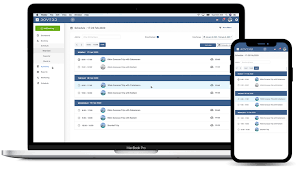Event Solutions: Making Your Occasion Memorable and Stress-Free
Planning an event can be an overwhelming task, whether it’s a corporate conference, a wedding, or a community gathering. From coordinating logistics to managing vendors and ensuring a seamless experience for attendees, there are numerous aspects to consider. This is where event solutions come into play, offering expertise and support to make your occasion truly memorable.
Event solutions encompass a wide range of services designed to streamline the planning process and deliver exceptional experiences. These solutions can be tailored to meet the unique needs of any event, ensuring that every detail is meticulously taken care of.
One of the key benefits of utilizing event solutions is the access to experienced professionals who specialize in event management. These experts possess extensive knowledge and skills honed through years of planning various types of events. They understand the intricacies involved in creating successful occasions and are equipped with the tools necessary to navigate any challenges that may arise.
From venue selection and design to audiovisual production and technical support, event solutions providers offer comprehensive services that cover all aspects of event planning. They work closely with clients to understand their vision, objectives, and budget constraints, crafting customized plans that align with their goals.
Effective communication is another crucial element in successful event planning. Event solutions providers excel in this area by establishing clear lines of communication between all stakeholders involved – clients, vendors, attendees, and staff. This ensures that everyone is on the same page throughout the entire process, minimizing misunderstandings and maximizing efficiency.
Furthermore, event solutions providers have established relationships with trusted vendors in various industries. They leverage these connections to secure competitive pricing for services such as catering, entertainment, transportation, and decor. By tapping into their network of reliable partners, they can help clients save time and money while still delivering high-quality results.
On-site coordination is yet another valuable service offered by event solutions providers. During the actual event day(s), their team will be present to oversee all logistical aspects, troubleshoot any issues that may arise, and ensure that everything runs smoothly. This allows clients to relax and fully immerse themselves in the event, knowing that they have a dedicated team handling all the details.
In today’s digital age, technology plays a significant role in event planning. Event solutions providers are well-versed in utilizing the latest event management software and tools to streamline processes such as registration, ticketing, and attendee engagement. They can also leverage social media platforms and online marketing strategies to promote events and boost attendance.
In conclusion, event solutions are a valuable resource for anyone looking to plan a successful and stress-free occasion. By partnering with experienced professionals who offer comprehensive services, clients can focus on their objectives while leaving the intricate details in capable hands. From start to finish, event solutions providers work tirelessly to bring visions to life, ensuring that every event is an unforgettable experience for all involved.
Common Questions About Event Solutions: Find the Best Fit, Pricing, Features, Setup Ease, and Support Options
- What is the best event solution for my needs?
- How much does an event solution cost?
- What features should I look for in an event solution?
- How easy is it to set up and use an event solution?
- What support options are available with an event solution?
What is the best event solution for my needs?
To determine the best event solution for your needs, it’s essential to consider several factors. Here are some key points to help you identify the most suitable option:
- Event Type: Consider the nature of your event. Is it a corporate conference, a wedding, a trade show, or a community gathering? Different event solutions providers specialize in various types of events, so look for one that has experience in organizing events similar to yours.
- Services Offered: Assess the range of services offered by different event solutions providers. Do they cover all aspects of event planning, including venue selection, design, logistics, audiovisual production, and on-site coordination? Ensure that the provider can meet your specific requirements.
- Experience and Reputation: Look for an event solutions provider with a proven track record and positive reviews from previous clients. Experience matters when it comes to handling all the intricacies of event planning and execution.
- Customization: Consider whether the provider offers customized solutions tailored to your unique needs and preferences. A one-size-fits-all approach may not align perfectly with your vision and objectives.
- Budget: Evaluate the pricing structure of different event solutions providers and ensure that their services fit within your budget constraints. Remember to consider both upfront costs and any potential hidden fees.
- Communication and Collaboration: Effective communication is crucial in successful event planning. Choose an event solutions provider who prioritizes clear communication channels and collaboration throughout the planning process.
- Technology Integration: If technology plays a significant role in your event (e.g., online registration or live streaming), ensure that the provider is proficient in utilizing relevant software tools to streamline processes and enhance attendee experiences.
- Vendor Network: Consider whether the provider has established relationships with trusted vendors in various industries (e.g., catering, entertainment). This can result in better pricing options and access to high-quality services.
- Flexibility and Adaptability: Events often require flexibility due to unforeseen circumstances or last-minute changes. Look for an event solutions provider who can adapt quickly and efficiently to any unexpected situations.
- References and Recommendations: Seek recommendations from colleagues, friends, or industry professionals who have previously worked with event solutions providers. Their firsthand experiences can provide valuable insights.
By considering these factors and conducting thorough research, you can identify the event solution that best aligns with your needs, ensuring a successful and memorable occasion.
How much does an event solution cost?
The cost of an event solution can vary greatly depending on several factors, including the type and scale of the event, the services required, the location, and the duration. Each event is unique, and therefore, pricing is typically tailored to meet the specific needs and budget of the client.
Event solution providers offer a range of packages or customizable options to accommodate different requirements. Some providers may charge a flat fee for their services, while others may charge based on a percentage of the overall event budget. Additionally, there may be additional costs for specific services or add-ons.
It is important to have a detailed discussion with potential event solution providers to understand their pricing structure and what is included in their packages. This will help you determine if their services align with your budget and expectations.
Keep in mind that investing in professional event solutions can often yield significant benefits in terms of time savings, stress reduction, and overall event success. While there is a cost associated with these services, they can help ensure a smooth and memorable experience for both organizers and attendees.
To get an accurate estimate for your specific event, it is recommended to reach out to reputable event solution providers and discuss your requirements with them. They will be able to provide you with a more precise quote based on your unique needs and preferences.
What features should I look for in an event solution?
When looking for an event solution, there are several key features and capabilities to consider. These features can vary depending on the specific needs of your event, but here are some essential ones to look for:
- Event Registration and Ticketing: A robust event solution should offer an easy-to-use registration and ticketing platform. Look for features such as customizable registration forms, secure payment processing, and the ability to generate electronic tickets.
- Event Website and Landing Pages: An event solution that provides website creation tools or integrates with popular website builders can be beneficial. This allows you to create a dedicated event website or landing page to provide information, promote the event, and handle registrations.
- Attendee Management: Look for a solution that enables efficient attendee management, including the ability to track registrations, manage attendee data, send personalized communications, and handle check-ins on-site.
- Mobile App Integration: Mobile apps can enhance the attendee experience by providing real-time updates, interactive schedules, networking opportunities, and engagement features. Consider an event solution that integrates with mobile app platforms or offers its own app-building capabilities.
- Event Marketing Tools: Effective event promotion is crucial for success. Look for solutions that offer marketing tools such as email campaigns, social media integration, analytics tracking, and promotional code generation.
- On-Site Check-In and Badge Printing: Streamline the check-in process by choosing an event solution that supports on-site check-in through mobile devices or self-service kiosks. The ability to print badges on-demand is also a valuable feature.
- Session Scheduling and Agenda Management: If your event includes multiple sessions or tracks, look for a solution that allows you to create schedules, manage speaker information, assign rooms or virtual spaces, and facilitate attendee session selection.
- Networking and Engagement Tools: Consider solutions that provide networking features like matchmaking algorithms, attendee messaging capabilities, discussion forums or chat rooms, virtual meeting scheduling, and interactive Q&A sessions.
- Analytics and Reporting: Data is essential for evaluating event success and making informed decisions. Look for solutions that offer robust analytics and reporting features, including registration metrics, attendee engagement data, feedback surveys, and post-event analysis.
- Integration Capabilities: Ensure that the event solution can integrate with other tools or platforms you use, such as CRM systems, marketing automation software, or payment gateways. Seamless integration enhances efficiency and data management.
Remember to assess your specific event requirements and prioritize the features that align with your goals. A comprehensive event solution should provide a combination of these features to help you plan, manage, promote, and analyze your event effectively.
How easy is it to set up and use an event solution?
Setting up and using an event solution can vary depending on the specific platform or service you choose. However, most event solutions are designed to be user-friendly and intuitive, making the process relatively easy for both event organizers and attendees. Here are some key factors to consider:
- User-Friendly Interface: Event solutions typically feature user-friendly interfaces that allow organizers to set up their events quickly and efficiently. Look for platforms that offer drag-and-drop functionality, customizable templates, and easy navigation.
- Event Setup: The setup process usually involves creating an event page or website where attendees can find information and register. This may involve adding event details such as date, time, location, ticket types, pricing, and any additional options like workshops or sessions.
- Registration and Ticketing: Event solutions simplify the registration and ticketing process by providing online registration forms that attendees can fill out easily. Organizers can customize these forms to collect specific information required for their event.
- Payment Processing: Most event solutions integrate with popular payment gateways to securely process ticket sales or registration fees online. This allows attendees to make payments conveniently using credit cards, PayPal, or other accepted methods.
- Communication Tools: Event solutions often include built-in communication tools such as email marketing features or messaging systems to keep organizers connected with attendees throughout the planning process.
- Attendee Management: Managing attendee information is made easier with event solutions that offer attendee management features. Organizers can track registrations, send confirmations or e-tickets, manage attendee lists, and even check-in attendees on the day of the event using mobile apps or QR code scanning.
- Analytics and Reporting: Many event solutions provide analytics and reporting tools that allow organizers to track key metrics like ticket sales, attendance rates, demographics of attendees, etc., helping them gain insights into their events’ success.
While most event solutions strive to be user-friendly, it’s important to familiarize yourself with the specific features and functionalities of the platform you choose. Take advantage of any available tutorials, support documentation, or customer support channels offered by the event solution provider to ensure a smooth setup and usage experience.
What support options are available with an event solution?
Event solutions providers offer a range of support options to ensure that clients have the assistance they need throughout the planning and execution of their events. Some common support options include:
- Consultation: Event solutions providers offer consultation services to understand the client’s vision, goals, and requirements. They provide expert advice on various aspects such as venue selection, event design, budgeting, and logistics.
- Planning and Coordination: Event solutions providers take care of all the logistical details involved in event planning. This includes creating timelines, managing budgets, coordinating with vendors, and ensuring that all necessary permits and licenses are obtained.
- Vendor Management: Event solutions providers have established relationships with trusted vendors in different industries. They can help clients select and manage vendors for services such as catering, audiovisual production, transportation, decor, entertainment, and more.
- On-Site Support: During the event itself, event solutions providers often have a team present on-site to oversee all aspects of the event’s execution. They handle tasks such as setup and teardown, manage vendor coordination, troubleshoot any issues that arise during the event, and ensure everything runs smoothly.
- Technical Support: For events requiring technical equipment or special setups like conferences or exhibitions, event solutions providers offer technical support. This includes audiovisual setup and operation, lighting design, stage management, internet connectivity support, and other technical requirements.
- Attendee Management: Event solutions providers can assist with attendee management through services like registration management systems or ticketing platforms. They help set up online registration processes, manage attendee databases, handle ticket sales or check-ins at the venue if applicable.
- Post-Event Evaluation: After the event concludes successfully, event solutions providers may offer post-event evaluation services to gather feedback from attendees or stakeholders. This feedback helps assess the success of the event and identify areas for improvement in future events.
It is important to note that specific support options may vary depending on the event solutions provider and the client’s individual needs. Providers often offer customizable packages to cater to different types and sizes of events, ensuring that clients receive the support they require for a successful event.






